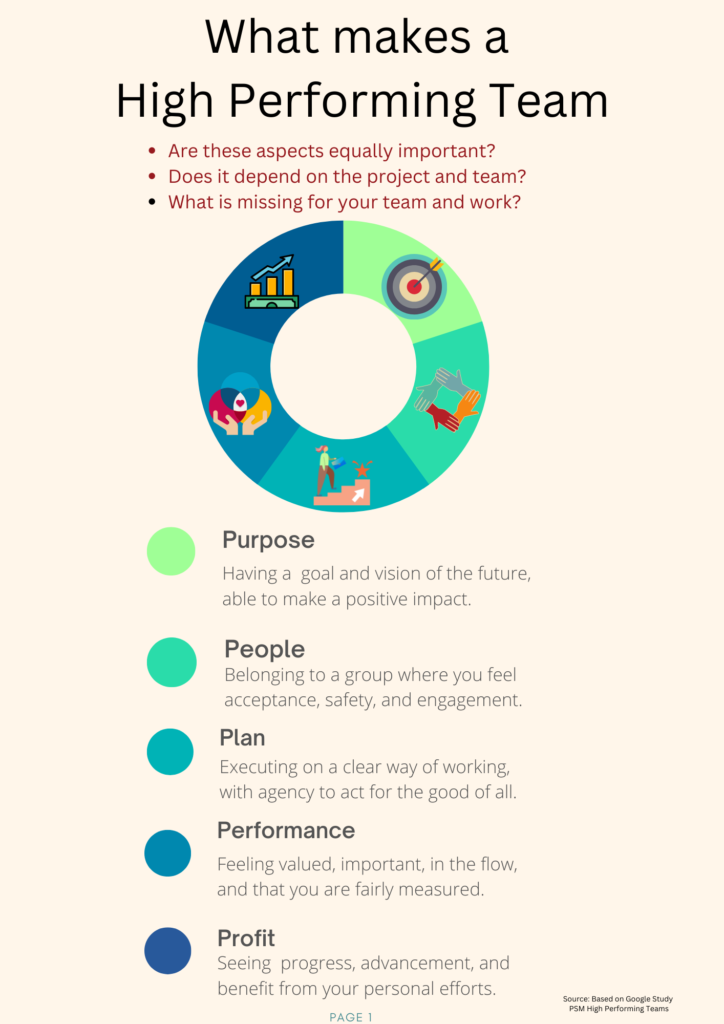Building a high-performing team is important for project success. This blog will help you understand how to do it. Follow these easy steps to create a strong team.
Understand the Role of Each Team Member
Every team member has a role. Each role is important. Understanding these roles helps the team work better together.
Identify Skills And Strengths
Know the skills of each team member. Know their strengths. This helps you assign tasks that fit their abilities.
Clear Job Descriptions
Write clear job descriptions. This tells each member what to do. It reduces confusion and helps the team work smoothly.
Good Communication is Key
Communication is important in a team. Good communication helps avoid mistakes. It also helps solve problems faster.
Regular Meetings
Have regular team meetings. This helps everyone stay updated. It also gives a chance to discuss any issues.
Open Communication Channels
Encourage open communication. Make sure everyone feels comfortable sharing their thoughts. This helps build trust in the team.

Credit: www.nimbleup.com
Set Clear Goals
Clear goals guide the team. They help everyone understand what to achieve. This keeps the team focused and motivated.
Smart Goals
Set SMART goals. SMART stands for Specific, Measurable, Achievable, Relevant, and Time-bound. These goals are clear and easy to track.
Regular Progress Checks
Check the progress regularly. This helps keep the team on track. It also allows you to make changes if needed.

Credit: www.linkedin.com
Encourage Collaboration
Collaboration helps the team work better together. It allows sharing of ideas and skills. This leads to better project outcomes.
Team-building Activities
Organize team-building activities. These activities help build trust and understanding. They also make the team more cohesive.
Collaborative Tools
Use collaborative tools. Tools like project management software help the team work together. They make communication and task management easier.
Provide Support and Resources
Support your team. Provide the resources they need. This helps them work effectively and efficiently.
Training And Development
Offer training and development opportunities. This helps team members improve their skills. It also keeps them motivated and engaged.
Access To Tools And Equipment
Ensure the team has access to necessary tools and equipment. This helps them complete their tasks without any hindrance.
Recognize and Reward Efforts
Recognizing and rewarding efforts is important. It boosts morale and motivates the team to perform better.
Recognition Programs
Implement recognition programs. These programs acknowledge the hard work of team members. They make the team feel valued.
Incentives
Offer incentives for good performance. Incentives can be bonuses, promotions, or other rewards. They encourage the team to work harder.
Resolve Conflicts Quickly
Conflicts can harm the team. Resolve conflicts quickly to maintain harmony. This helps keep the team focused on their goals.
Effective Conflict Resolution
Use effective conflict resolution techniques. Listen to all sides. Find a solution that works for everyone.
Preventive Measures
Take preventive measures to avoid conflicts. Encourage open communication. Foster a positive team culture.
Lead by Example
As a leader, set a good example. Your actions influence the team. Show commitment, integrity, and professionalism.
Be Accessible
Be accessible to your team. Offer guidance and support when needed. This builds trust and respect.
Encourage Feedback
Encourage feedback from your team. Listen to their suggestions and concerns. This helps improve team performance.
Frequently Asked Questions
What Is A High-performing Team?
A high-performing team is a group that works well together. They meet goals and exceed expectations.
How Can I Build Trust In My Team?
Communicate openly and honestly. Listen to team members’ ideas and concerns.
What Are The Key Traits Of Effective Teams?
Effective teams communicate well, collaborate, and stay focused on goals. They respect each other.
How Important Is Team Diversity?
Team diversity brings different perspectives. It leads to better problem-solving and innovation.
Conclusion
Building a high-performing team takes effort. Understand roles, communicate well, and set clear goals. Encourage collaboration and provide support. Recognize efforts and resolve conflicts. Lead by example. Follow these steps to build a strong team for your projects.

